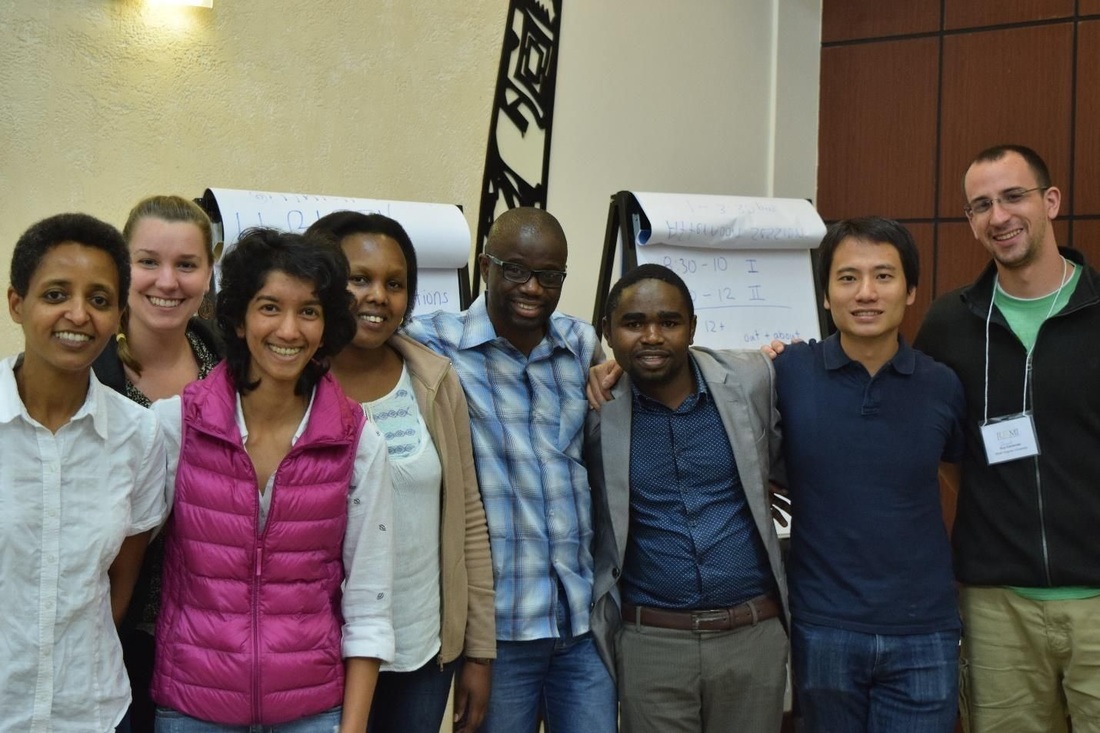|
The following is a copy of a press release Development of economically viable labs for African universities [September 12, 2016] [Raleigh, North Carolina, U.S.] – A team of materials science graduate students from across the United States and East Africa is moving forward with their plan to develop low cost electrochemistry labs for undergraduates in African universities. The team intends to create a module comprising a potentiostat, a lab manual, and supplies for a semester’s worth of experiments—all for less than $100 per student. This will be achieved using an Arduino based potentiostat. The planned experiments will teach the students how energy technologies function, from batteries to solar cells, while reinforcing fundamental concepts of electrochemistry learned in lectures. The team met this summer while participating in a sustainable energy workshop in Arusha, Tanzania, hosted by the Joint Undertaking for an African Materials Institute (JUAMI). There, the students learned about various setbacks faced by African scientists throughout their education. “One issue repeatedly brought to our attention was that African scientists generally lacked the handson experience that we gain in our undergraduate labs here in the U.S.,” says mr. kwembur, one of the team members. “This problem was universally attributed to a lack of equipment and supplies.” If you have recently stepped into an undergraduate lab in the United States, you may know that they are an enormous undertaking of equipment maintenance, supplies, and the logistics of accommodating several hundred students each semester. An operation of this scale is daunting to many African universities, and most end up emphasizing theory over handson learning. After using Arduino modules (a lowcost, opensource hardware/software kit for creating interactive sensors and controls) for several activities during this summer’s sustainable energy workshop, the team realized these modules could easily serve as replacements for potentiostats, the basic electronic hardware required for most electrochemistry experiments that can cost thousands of U.S. dollars per instrument. Within the first year of the project, the team plans to build a classroom set of 10 Arduinobased potentiostats and perfect 5 experiments to accompany the instruments. These will be tested in three partner universities in Malawi, Tanzania and Kenya for the clarity and durability of the modules. After taking this feedback into account, the team plans to expand the project to eight additional universities in Africa during the second year of the project. ### Morko Kwembur Isaac, [email protected] (CoPrincipal Investigator) Department of Physics, Kenyatta University, PO Box 438440100, Nairobi, Kenya [Christopher Boggs, [email protected] (CoPrincipal Investigator) Department of Mechanical and Aerospace Engineering, North Carolina State University] The international team, from left to right: Professor Sossina Haile (Northwestern University), one of the organizers of the summer workshop; Betsy Melenbrink (University of Southern California); Anupama Khan (California Institute of Technology); Angela Karoro (University of South Africa); Lameck Kabambalika Nkhonjera (Malawi University of Science and Technology); David Bahati (University of Dar es Salaam); Yuguang C. Li (Pennsylvania State University); Guy Cordonier (West Virginia University). Not pictured: Christopher Boggs (North Carolina State University); Morko Kwembur Isaac (Kenyatta University); John Paul Eneku (Makerere University).
1 Comment
7/15/2022 01:36:48 pm
A team of materials science graduate students from across the United States and East Africa is moving forward with their plan to develop low cost electrochemistry labs for undergraduates in African universities. Thank you for great post.
Reply
Leave a Reply. |
Archives
February 2023
|


 RSS Feed
RSS Feed
